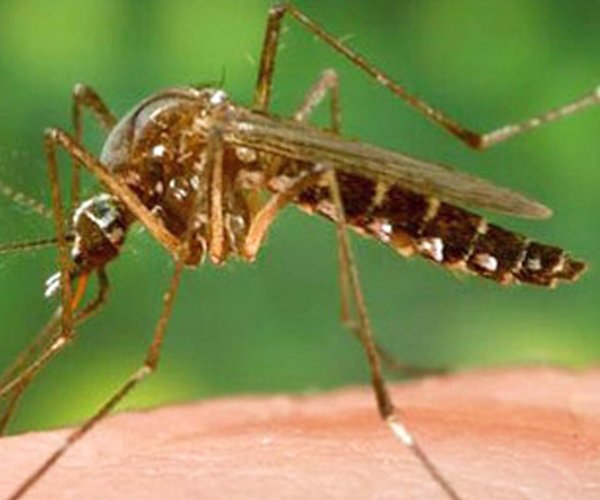Following the discovery of two Asian Citrus Psyllids last month on a residential property in Turlock, the California Department of Agriculture took measures to treat all citrus trees and host shrubs within a 400 meter radius of the detection site in an effort to stop the pest from spreading.
These Asian Citrus Psyllids, which are invasive insects that feed on the leaves and stems of citrus trees, were confirmed last month near Highway 99 between W. Main Street and W. Canal Drive, according to Stanislaus County Assistant Agricultural Commissioner Dan Bernaciak. These insects are known to spread huanglongbing, or citrus greening disease.
After an Asian Citrus Psyllid feeds on a tree that is infected with HLB, it carries the disease-causing bacteria for life and can transfer the disease when feeding on other trees. Although HLB does not pose a threat to humans or animals, there is no cure once a tree becomes infected.
A citrus plant infected with the disease typically declines and dies within a few years.
“This is not a threat to humans at all,” said Bernaciak in October. “What it is, is a threat to citrus trees. The Asian Citrus Psyllid can spread huanglongbing, otherwise known as the citrus greening disease, and that disease is 100 percent fatal to citrus trees.”
All citrus and closely related species are susceptible hosts for both the Asian Citrus Psyllid and HLB. Plants found to be infected with HLB are destroyed and removed in order to prevent the disease from spreading to surrounding citrus trees.
Last week kicked off treatments for citrus trees and host shrubs within the 400 meter treatment area. At no charge, the CDFA applied insecticides Tempo SC Ultra (cyflutrhin), a pyrethroid, and Merit 2F or CoreTect (imidacloprid) using ground-based equipment.
These insecticides kill adult and/or immature ACP present on citrus trees or host shrubs. After the treatment was completed and the treated area dried, residents were able to use their property as they normally would.
USDA and University of Florida researchers are hoping to also halt the spread of the disease by developing vibration traps that intercept psyllid mating calls, thus bringing their populations under control.
USDA Center of Medical, Agricultural and Veterinary Entomology research entomologist Richard Mankin explained during the 170th meeting of the Acoustical Society of America earlier this month that male Asian Citrus Psyllids look for a mate by buzzing their wings to send vibrations along adjacent leaves and branches and waiting for an interested female’s responding call. Within two to seven weeks, the two insects can potentially create an abundance of psyllid nymphs.
“The route I’m trying to take is looking at disrupting mating and putting out signals that either outcompete the females and bring males to a trapping system, or just make it difficult for males and females to communicate with each other,” said Mankin.
Along with Barukh Rohde, who is a Ph.D. student in the UF Department of Electrical and Computer Engineering, Mankin created a device which contains a piezoelectric buzzer and a microphone tied to a microcontroller. Between the time that the male Asian Citrus Psyllid sends out its mating call and the time that an interested females responds, the researchers’ device detects the incoming male call and sends out a female response call before any neighboring psyllids can. When the male Asian Citrus Psyllid approaches the device, it gets “snagged and immobilized” on an adhesive service, where he will later be collected.
Although the device hasn’t yet been tested extensively out in the field, Mankin said that he estimates that each device is effective within a one to two foot radius surrounding a citrus tree, with the cost of construction between $50 and $100.
Individuals who think they may have seen the pest are urged to call the Pest Hotline at 1-800-491-1899. For more information on the Asian Citrus Psyllid and huanglongbing disease, visit cdfa.ca.gov/plant/acp.





